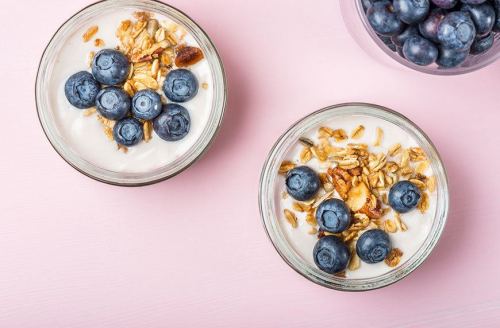Wellness has come for wine, and along with it, a slew of misleading marketing claims.
Experts in This Article
For the past few years, newer wine brands and established winemakers alike have been debuting wines they say are “lower calorie,” “cleaner” (cue eye roll), and/or contain “zero sugar.” These labels are often selling a one-two punch of supposedly better-for-you alcohol.
Wine Enthusiast tracks the beginning of this trend to around 2019. But today, as winemakers reckon with the growing popularity of “Dry” or “Damp” January, sobriety, the sugar-phobic keto diet, and healthy living as a whole (which was further fueled by the pandemic), the bottles—and their Instagram ads—are becoming ubiquitous.
Now, as January fades into the rearview mirror and brands are banking on people’s desire to keep the health train going while no longer teetotaling, you’re likely seeing more ads for these wines than ever. But do the claims of these wines stack up?
What to know about “healthy,” “clean,” and zero sugar wines
Federico Casassa, PhD, an enology (wine studies) professor at California Polytechnic State University, San Luis Obispo, says these descriptors are just about marketing.
“It’s advertising,” Dr. Casassa says. “Today, when you call something ‘low calorie’ or ‘zero sugar,’ you are just targeting a very specific demographic that also happens to be driving the economy.”
The surprising reason why “zero sugar” claims in particular are nonsensical is because, in fact, most wines are already virtually sugar free. In the winemaking process, yeast converts sugar into alcohol. “Dry wines” are those that leave a negligible amount of sugar behind after fermentation. And guess what? “Dry wines” describe the vast majority of wines out there, save for specific dessert or sweet-slash-fortified wines like Moscato, Icewine, or “late harvest” varieties of Riesling. “So yes, saying that a dry wine is ‘sugar free’ is completely redundant,” says Dr. Casassa.
“It’s advertising,” Dr. Casassa says. “Today, when you call something ‘low calorie’ or ‘zero sugar,’ you are just targeting a very specific demographic that also happens to be driving the economy…Saying that a day wine is ‘sugar free’ is completely redundant.”
Furthermore, per advertising guidelines issued by the Alcohol and Tobacco Tax and Trade Bureau, calling something “zero sugar” in the United States means it needs to contain less than 0.5 grams of sugar per beverage (which comes to 2.5 grams per bottle, since a bottle contains five glasses of wine). As winemaker Adam Lee points out in a post on Vinography, for a wine to be considered “dry,” it has to have less than two grams of sugar per bottle. So brands claiming “zero-sugar” need not disclose the (negligible) amount of sugar that is present in a dry wine. Even by advertising standards, there is no difference between a “zero sugar” wine and your standard bottle—and there’s no way to tell if a wine claiming “zero-sugar” actually has less than those 0.5 grams per glass.
And for some additional perspective on the unnecessary brouhaha surrounding the sugar content in wine, those 0.5 grams of sugar net two whole calories, according to the USDA.
Which brings us to our next point: That “lower calorie” wines are a entirely different beast. Dr. Casassa explains that the source of calories in wine comes from the (small amounts of) sugar, and—mostly—the alcohol. This means that alcohol itself is the overwhelming source of the calories in your average glass of vino. So when a wine says it is “lower calorie,” it just means that it is lower in alcohol. Winemakers typically achieve this by starting with grapes that have a lower sugar content, so there’s less sugar to ferment into alcohol.
Low calorie wine that’s actually lower alcohol is all fine and dandy. But if you’re considering buying a low calorie wine, it’s not like you’re getting the same product for magically fewer calories. Low calorie wine brands aren’t typically misleading about this, but it’s something to keep in mind if you happen to be browsing the aisles and have your interest piqued by a “low calorie” label. (And to go deeper, keep in mind that natural wines tend to have a lower alcohol content, too—which is a key reason why many folks report feeling less hungover after drinking these varietals.)
The rising health consciousness of the public has led to a rise in the popularity of sugar-free beverages—both those that are naturally sugar-free, like seltzers, and sugar-free alternatives to soda, like Coke Zero and energy drinks. It’s out of a need to keep up, says Dr. Casassa, that winemakers are turning to zero sugar and lower calorie marketing. That’s understandable, but it’s also fundamentally meaningless, and even potentially misleading or harmful.
Instead, Dr. Casassa thinks the public should focus on drinking in moderation, and appropriately valuing the relaxation and good vibes that so often flow when you’re sharing a bottle of wine with friends. After all, do you really want to be thinking about calories and sugar content during those moments?
If knowing that the wine you’re drinking contains “zero” sugar will help you enjoy the experience more, imbibe in “zero sugar” and dry wines alike (they’re the same thing, remember) with confidence. But if you choose to partake in a glass of wine, maybe you can use it as a break from the restrictive and toxic habit of calorie counting; the “is it worth it” calculations. Sip, aerate, taste, savor, get in tune with the wine’s dimensions, say cheers, and chat with your loved ones.
That—not calories—is what wine is all about.
Sign Up for Our Daily Newsletter
Get all the latest in wellness, trends, food, fitness, beauty, and more delivered right to your inbox.
Got it, you've been added to our email list.











